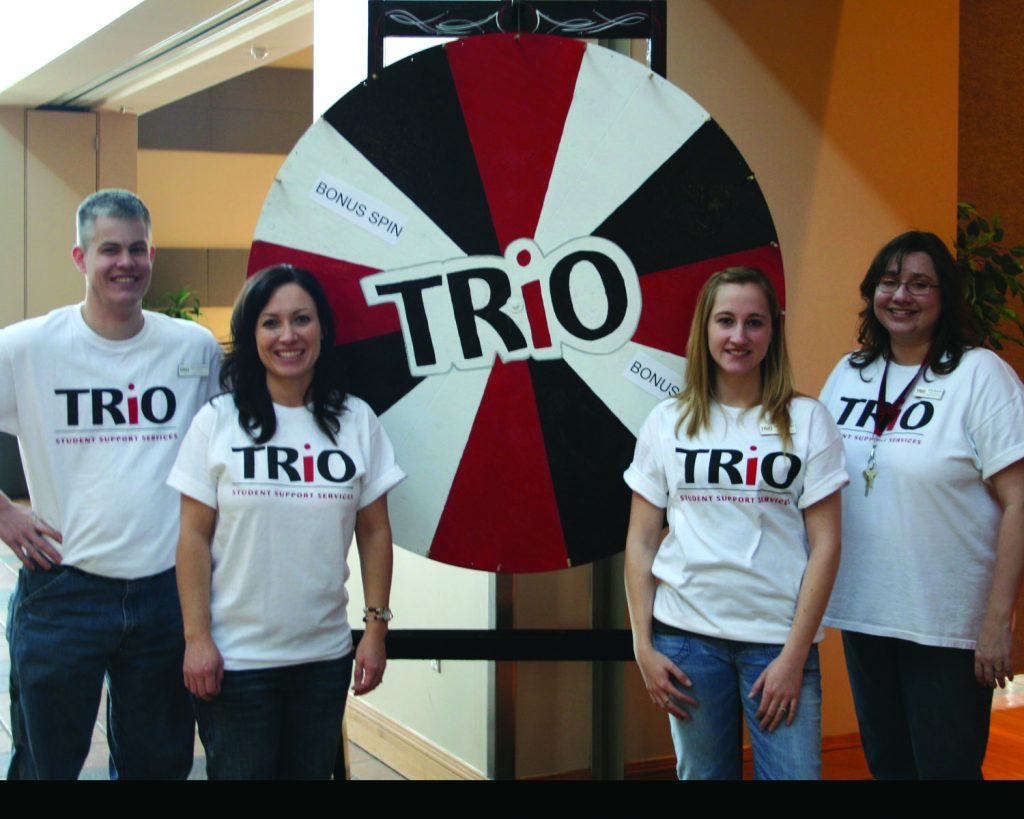TRiO no more
Utah State University-College of Eastern Utah recently felt a loss as of the Sept. 1, when its Student Support Services/TRiO program no longer is a part of the school, due to a loss of federal funding.
Tracie Noyes, program director, said her first reaction when she found out was devastation. She said, “To lose that [program] now that we were finally [feeling like] a part of campus is really devastating.”
The students didn’t exactly have a positive response, but it wasn’t negative either. “Mostly they were just very grateful for what we’ve done for them in the past,” she said.

This archived article was written by: Mae Goss
Utah State University-College of Eastern Utah recently felt a loss as of the Sept. 1, when its Student Support Services/TRiO program no longer is a part of the school, due to a loss of federal funding.
Tracie Noyes, program director, said her first reaction when she found out was devastation. She said, “To lose that [program] now that we were finally [feeling like] a part of campus is really devastating.”
The students didn’t exactly have a positive response, but it wasn’t negative either. “Mostly they were just very grateful for what we’ve done for them in the past,” she said.
Noyes said her favorite part of the program was “making the connections with the students and watching them being successful.”
The blame for this occurrence is not to go to anyone. The TRiO program was federally funded, and in order to get this funding, Noyes said there is a competition every five years and this year USU-CEU didn’t score high enough to get the funding. “Hopefully, the next time around, we can get it back,” she said.
The TRiO program started in 1965 with helping first generation, low income, disabled and non-traditional students to be successful while at CEU, to help them graduate and transfer onto another school, if they choose to do so.
They keep an average of 160 students in the program with many on an unofficial “waiting list.” Noyes continued, “There are usually about 80 students who return from the previous year and 100 new applications come in every year.”
What can students who, if the program was still here, are in need of help this year go to talk to now? There are other programs on campus that can help. Of course, it won’t be the “one-stop shop for all of the students’ needs that TRiO provided,” Noyes said. “Connect with anyone. Students feel better when the campus is theirs.”
Places they can go to get such a connection are the advising offices. Shanny Wilson, Daniel Allred and Lyndsay Reid are the advisors on campus and are willing to help with classes and preparing to graduate.
What will the other TRiO staff members do now that they don’t have their jobs? Liz Prettyman is working as the administrator’s assistant to Russell Goodrich. Erin Rowley is working in the records office in the Jennifer Leavitt Student Center. Noyes hopes to find another job on campus.




